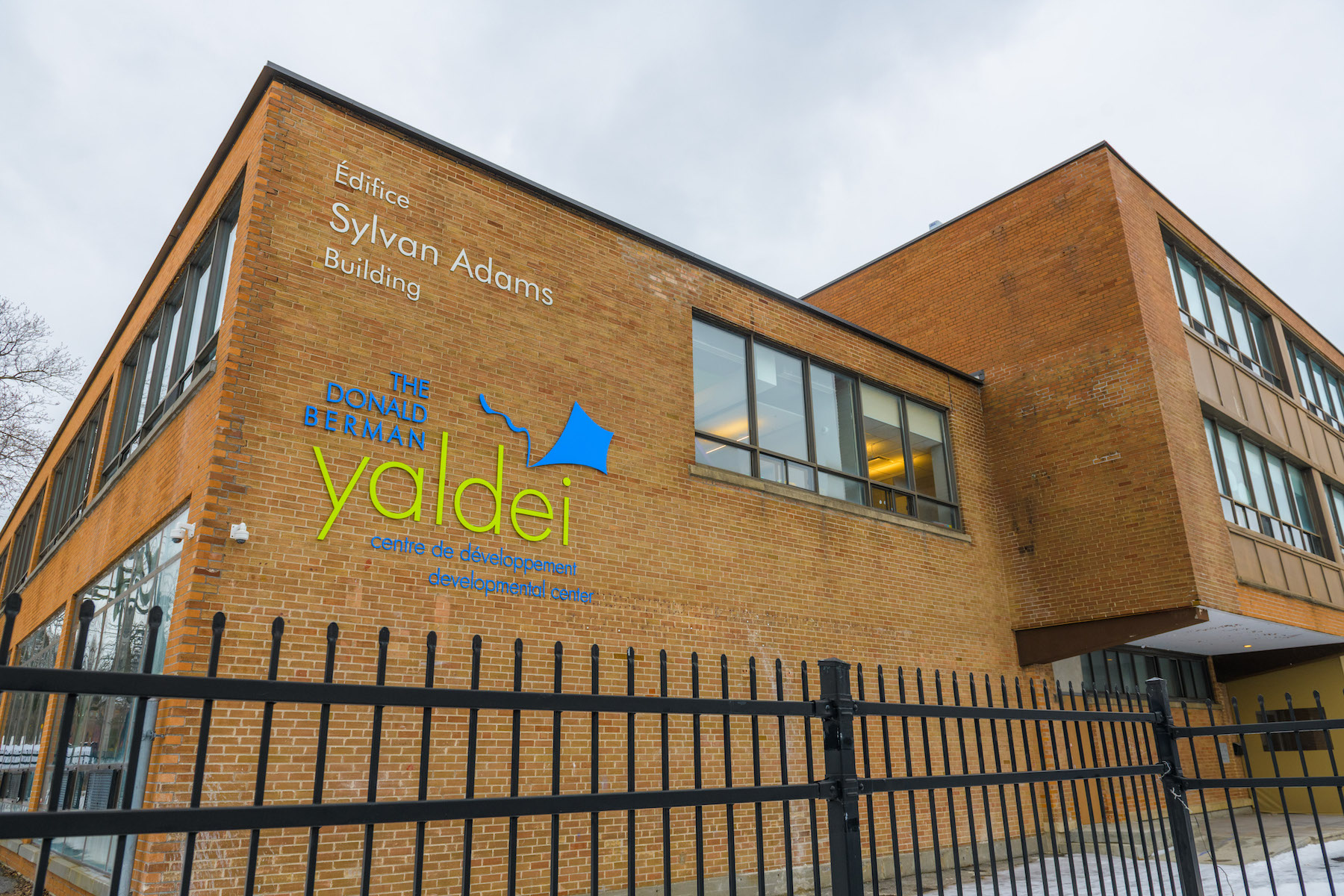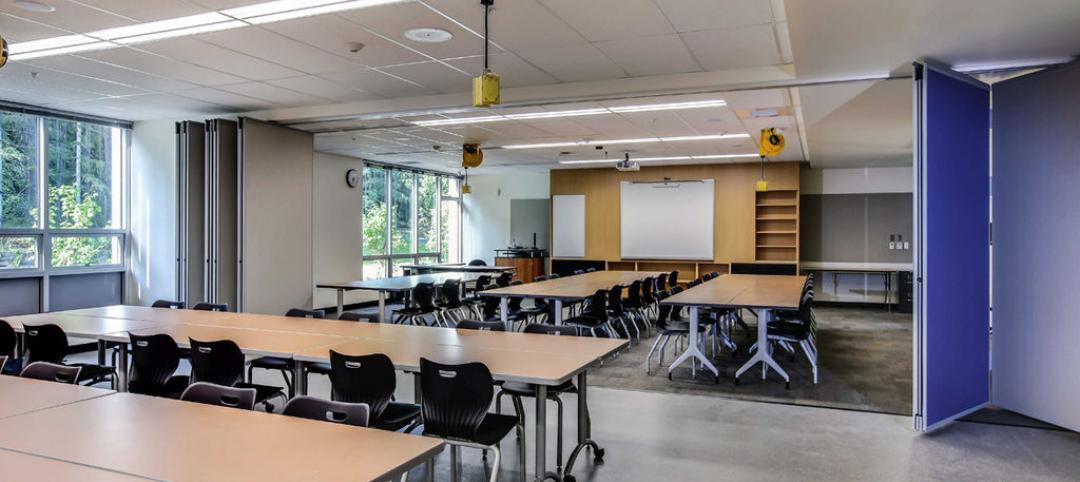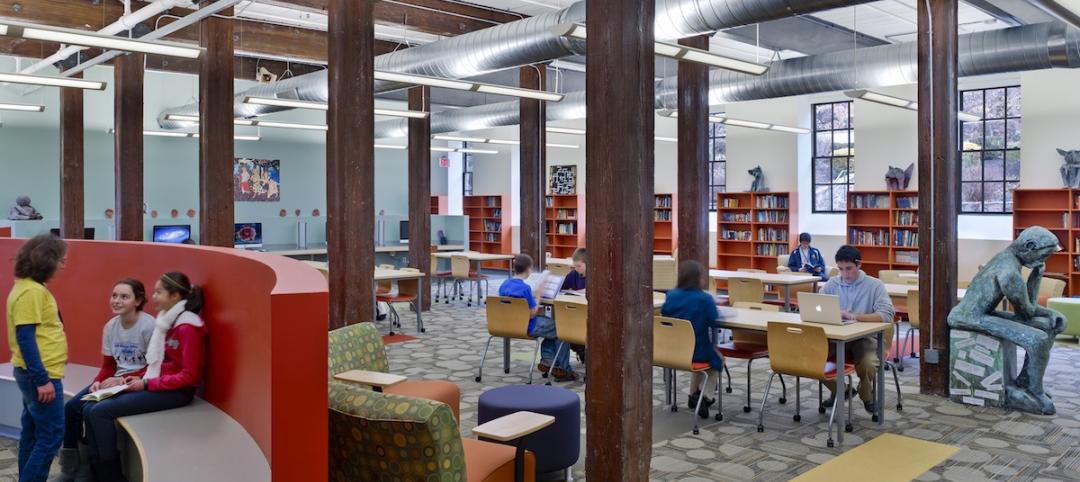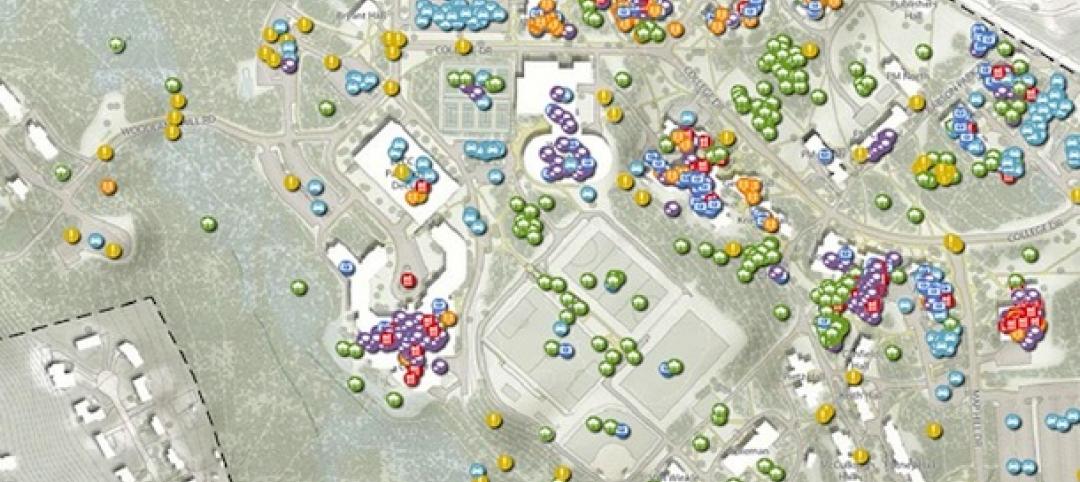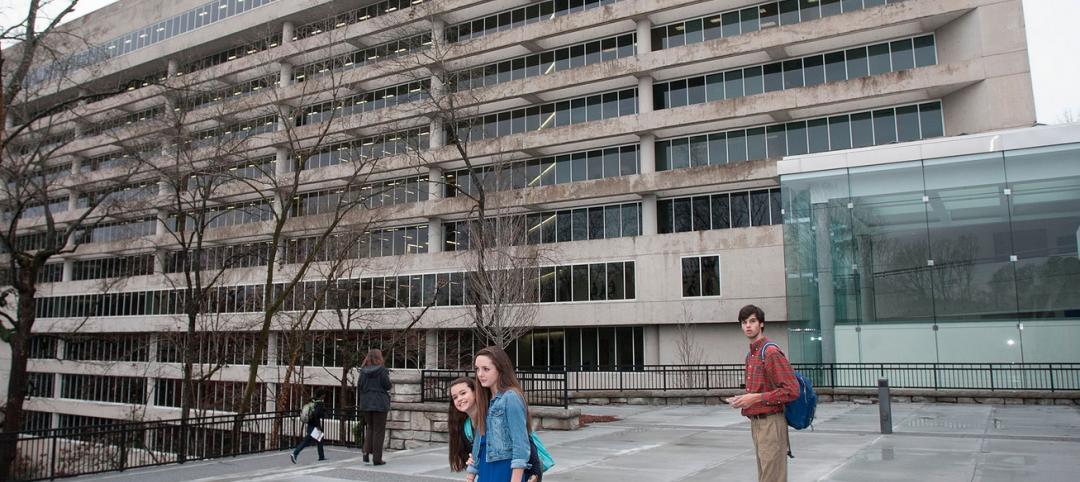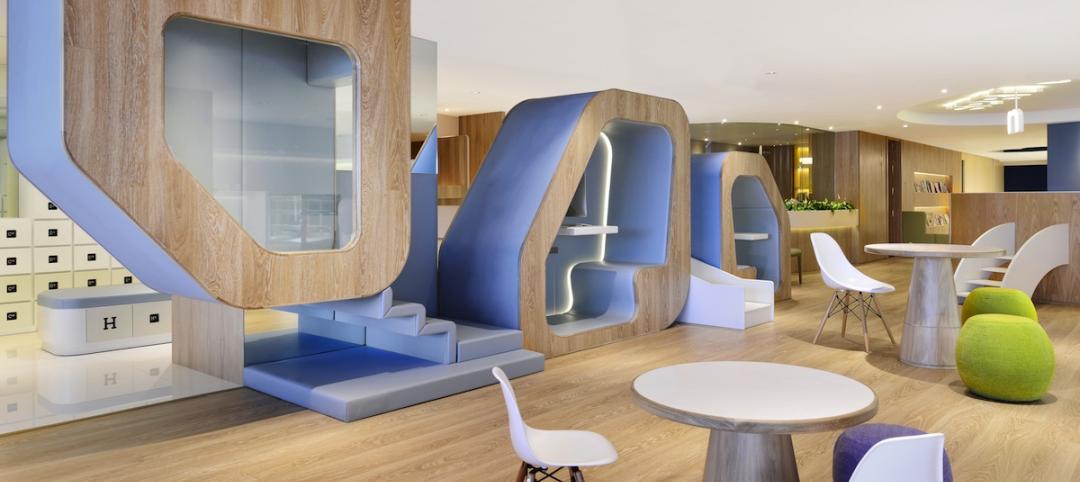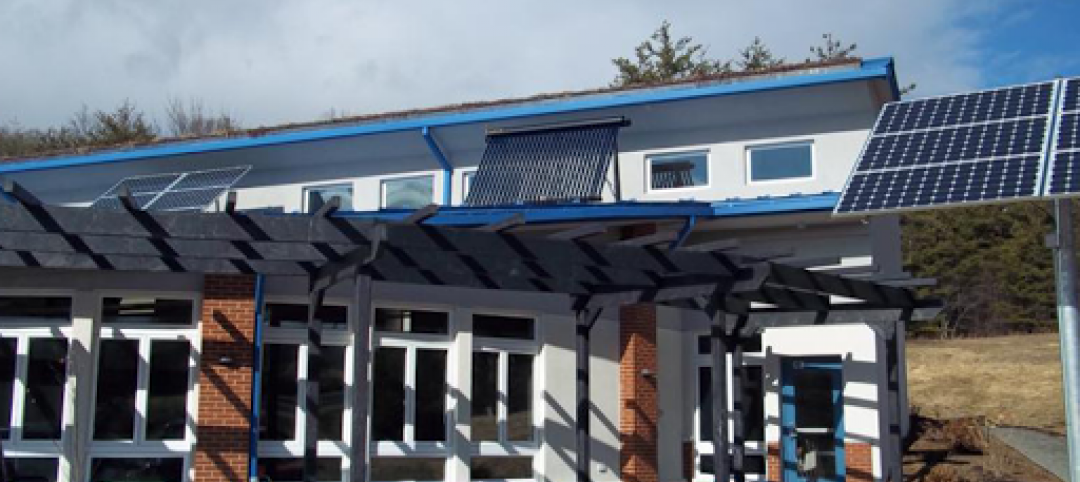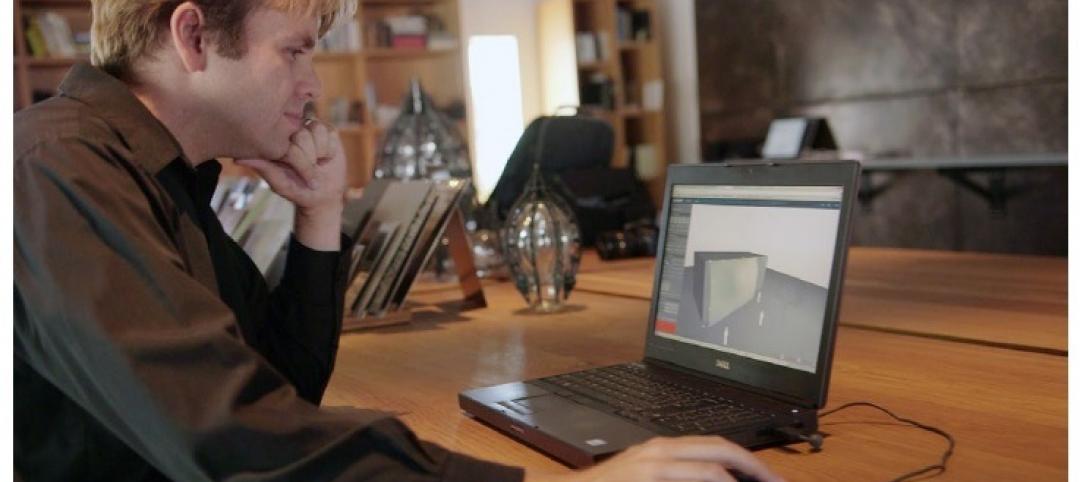Last fall, the Yaldei School in Montreal, Quebec, which provides education and therapy to children ages 4 through 16 with intellectual disabilities, completed a $4.5 million renovation of the three-story former parochial school that it had moved into in 2016. The goal of this project, by the firm Stendel + Reich Architecture, was to create spaces that relieve students’ anxiety and, according to the school, make things fun.
“As a true all-under-one-roof facility, at Yaldei a child can receive every support [he or she needs], and benefit from the collaboration of a multidisciplinary team,” the school stated through a spokesperson. “As such, we are constantly seeking to improve and expand our range of services and therapies modalities, with the aim of reaching every child, and giving each one the best change at success.”
To achieve this, Cliff Stendel, associate principal at Stendel + Reich, studied extensively about the students’ different disabilities, and drew knowledge as well from his firm’s previous experience designing Alzheimer’s facilities.
For example, Alzheimer’s patients often have trouble navigating turns in corridors. So Stendel redesigned Yaldei with oval corridors where, if students turn the wrong way, they just follow the corridor around to where they started.
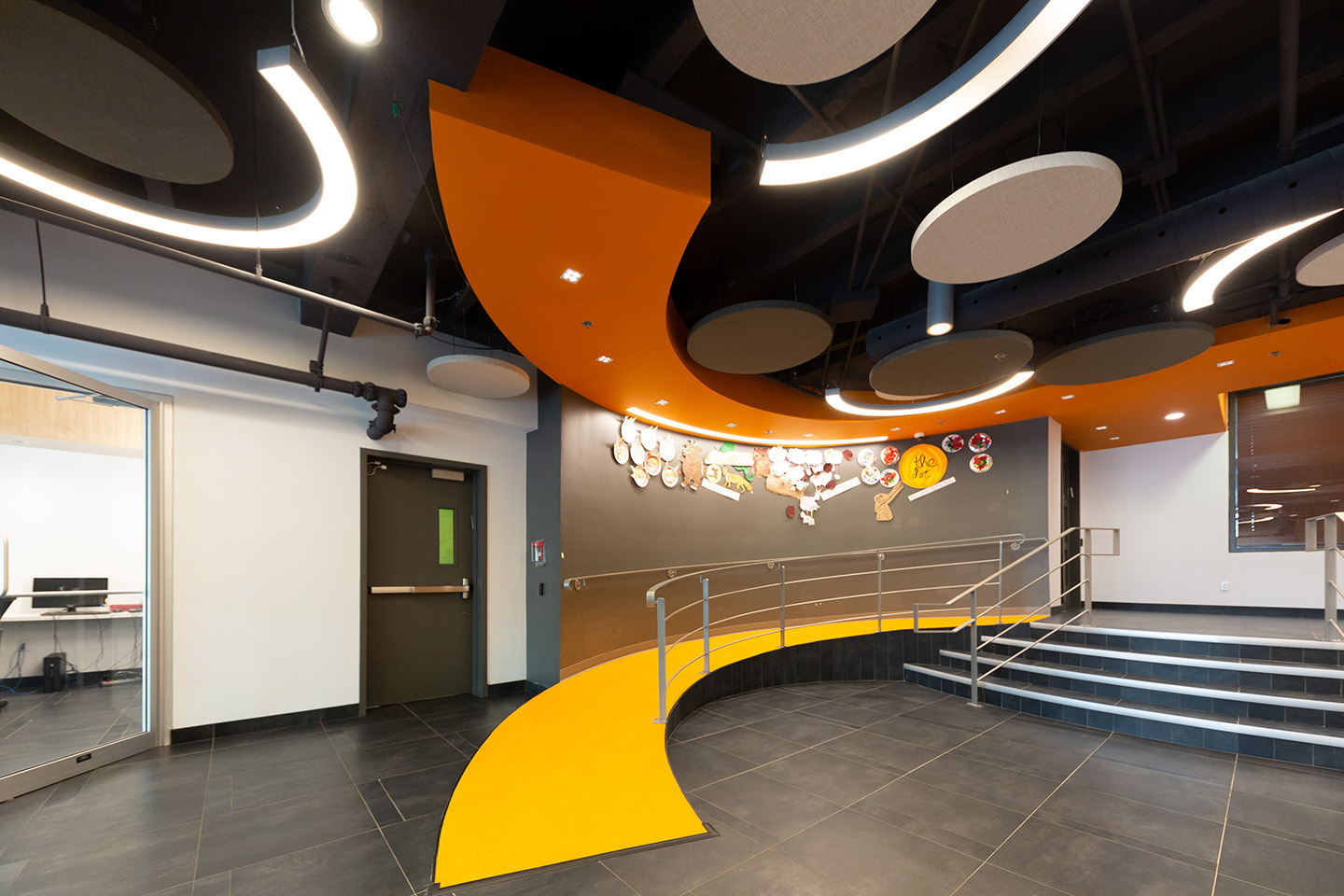
School uses light as therapy
Stendel also realized, through observation, that students with learning disabilities get distracted easily. To address this, the remodeling of therapy rooms excluded direct windows to the outside; instead, glass walls face the corridor, and on the other side of the corridor are windows that let in sunlight.
Lighting is key to this project. Stendel installed thin light strips in various designs to minimize the effect of lighting on hypersensitive children. So-called RGB lights (for red, green, and blue) also contribute to the children’s therapy, and lend a sense of playfulness to the environment.
The school is roughly 40,000 sf, and was remodeled in phases:
• In 2018, renovation of 7,505 sf on the third floor, which is mostly classrooms for older students, was started, as was 335 sf of washroom space and a 1,475-sf administration area. Floors and ceilings were replaced, new lighting and storage installed, and the rooms were freshly painted. The third-floor reno was completed last fall, and included the addition of eight classrooms, a revamped MEP/HVAC system, an accessible bathroom, a kitchenette in each classroom, and a teacher resource room and library;
• In 2019, the 12,355-sf second floor received a full renovation that included moving separate therapy rooms there, and converting a portion of this space to an early intervention area;
• In 2020, 6,410 sf of main classroom space were renovated, as were 6,425 of the first floor’s 10,580 total square footage.
This renovation project has allowed Yaldei School to grow. In the past few years, its enrollment has increased by 20 percent to 110. (The school has 165 registered students.) The school also collaborates with more than 25 schools in Montreal to provide services to a total of 250 intellectually challenged children per year.
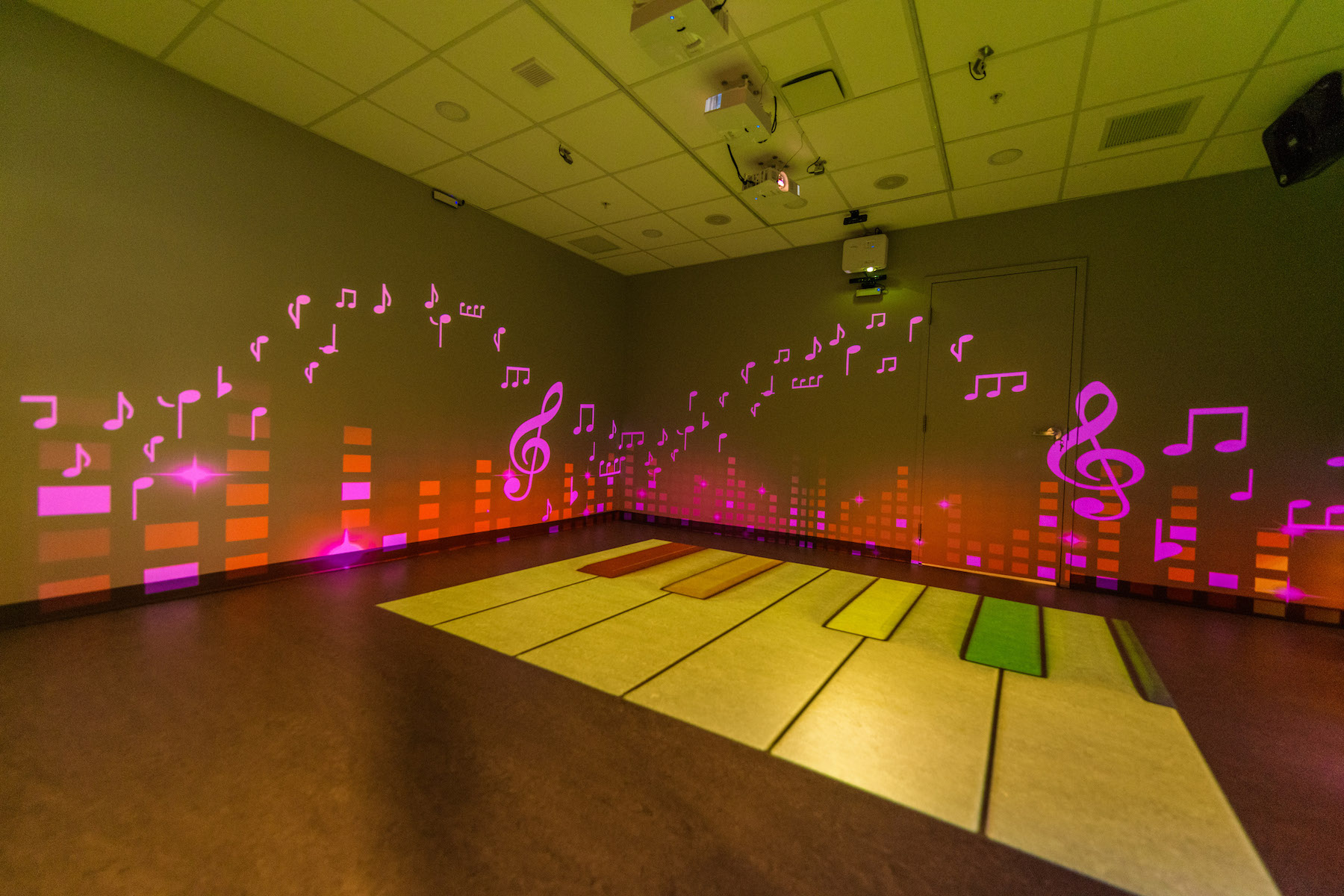
As a result of its renovations, Yaldei Shcool recently initiated an early-intervention group for infants with multiple handicaps and intense physical needs; and added an Art and Social Skills group for girls with high-functioning autism spectrum disorder. These weekly groups help children learn social skills and use art to relieve stress.
Yaldei’s future plans call for adapting more rooms into fully equipped classrooms to meet anticipated enrollment increases.
Related Stories
| Mar 4, 2014
If there’s no ‘STEM crisis,’ why build more STEM schools?
Before you get your shorts in a knot, I have nothing against science, technology, engineering, or even mathematics; to the contrary, I love all four “STEM” disciplines (I’m lying about the math). But I question whether we need to be building K-12 schools that overly emphasize or are totally devoted to STEM.
| Feb 26, 2014
Adaptive reuse project brings school into historic paper mill
The project features nontraditional classrooms for collaborative learning, an arts and music wing, and a technologically sophisticated global resource center.
| Feb 14, 2014
Crowdsourced Placemaking: How people will help shape architecture
The rise of mobile devices and social media, coupled with the use of advanced survey tools and interactive mapping apps, has created a powerful conduit through which Building Teams can capture real-time data on the public. For the first time, the masses can have a real say in how the built environment around them is formed—that is, if Building Teams are willing to listen.
| Feb 5, 2014
'School Security' PDF available to BD+C readers - CORRECTED
I've received several requests from BD+C readers who design and build K-12 schools about the 3-part series we ran in our January issue ("Can Design Prevent Another Sandy Hook?"). They wanted to send the issue to their school boards and other public officials with responsibility for school safety. In light of the importance of this topic, as a special service to our readers we're making the series available in PDF form.
| Feb 5, 2014
Extreme conversion: Atlanta turns high-rise office building into high school
Formerly occupied by IBM, the 11-story Lakeside building is the new home for North Atlanta High School.
| Jan 30, 2014
What to expect in the metal building industry in 2014
Every year brings changes. This one won’t be any different. We’ll see growth in some areas, declines in others. Here’s a little preview of what we’ll be writing about 2014 when 2015 comes rolling in.
| Jan 28, 2014
White Paper: How metal buildings deliver long-term value to schools
A new white paper from Star Building Systems outlines the benefits of metal buildings for public and private school building projects.
| Jan 28, 2014
16 awe-inspiring interior designs from around the world [slideshow]
The International Interior Design Association released the winners of its 4th Annual Global Excellence Awards. Here's a recap of the winning projects.
| Jan 15, 2014
Report: 32 U.S. buildings have been verified as net-zero energy performers
The New Buildings Institute's 2014 Getting to Zero Status report includes an interactive map detailing the net-zero energy buildings that have been verified by NBI.
| Jan 13, 2014
Custom exterior fabricator A. Zahner unveils free façade design software for architects
The web-based tool uses the company's factory floor like "a massive rapid prototype machine,” allowing designers to manipulate designs on the fly based on cost and other factors, according to CEO/President Bill Zahner.


